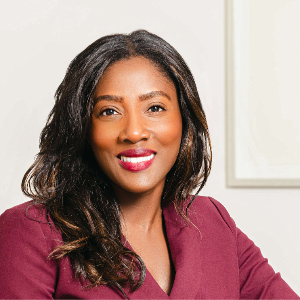
My Journey Through Grief and Healing
In August 2021, I lost my mother unexpectedly. She just slipped away. My father called around 10pm on a Friday night. When I picked up, he said, “Mom’s not doing too well, I think we may have lost her.” The absurdity of his words made me tighten my grip on the phone. It felt as surreal as someone telling you, 'Your leg is missing.'
My mother, who didn’t drink, didn’t smoke, and followed doctor’s orders with precision, was gone. The coroner labeled it “natural causes,” but there was nothing natural about this for me. Since my family couldn’t agree on a private autopsy, I had to live with the unanswered question of how—and why—she died.
I’d been slammed into a new reality: one without my mother. Where had she gone? What was her soul experiencing? These elusive questions haunted me night after night. I didn’t want to rely on faith; I wanted certainty. When my attempts to negotiate with God proved fruitless, I was pissed.
When you’re angry with God, you have far less patience for other people. After losing my mother, I was bombarded with well-meaning but grating remarks. The most common was, "She’s in a better place." I wanted to snap back, “How could you possibly know? A ‘better place’ is somewhere we’d all want to be. Are you ready to go now?!” Instead, I nodded politely and pitied them. I knew they had good intentions and wanted to help but a simple “I’m sorry for your loss” would have been sufficient. Why can’t people understand that during times of grief, platitudes are meaningless?
One gesture of kindness stood out. My leader at the time sent a thoughtful bouquet of flowers. It was tasteful and beautiful, sitting prominently on my kitchen counter. But as the days passed and the petals began to shrivel and fall, I found myself gently picking them up, tears streaming down my face. It was a reminder of how everything, even something vibrant and alive, eventually fades.
Some days, I threw myself into work, convincing myself that I was coping well. Other days, I couldn’t get out of bed. I’d lay there in a fetal position, replaying the last conversations I’d had with my mom, searching for clues I might have missed. When should I have known she was dying? Was there a sign I failed to see?
My mother wasn’t just my mom; she was my best friend, my person. It wasn’t uncommon for us to talk on the phone three or four times a week – sometimes a day. "Hey!" she’d greet me with the same enthusiasm every time, as if we hadn’t just spoken hours earlier. That unwavering connection made her absence unbearable.
Grief is strange and deeply personal. It showed up differently for me, my brothers and my father. Months after my mother’s passing, I’d bring her up in conversation, and my brothers didn’t seem to want to talk about her. Within a year of her death, my dad took his first international trip. He returned excited, sharing stories about how wonderful the experience had been. He even began talking about finding a “ladyfriend.”
I thought I was struggling more than my father and my brothers. But as time passed, I realized my brothers weren’t avoiding my mom’s memory out of indifference, but perhaps they just weren’t ready to face it. My dad’s zest for life after a 50-year marriage with my mom didn’t mean he didn’t love her. Perhaps he saw his own time fleeting and wanted to live every moment. It wasn’t fair for me to compare my brothers or my father’s way of grieving to my own.
I’ve come to understand that healing requires reclaiming the space and time we need, unapologetically. Processing grief without guilt, without rushing, just an act of self-care; is necessary. Giving ourselves the grace to heal on our own terms is an act of courage, whether that takes two weeks or two years. And with each step we take toward healing, we move closer to finding peace.

